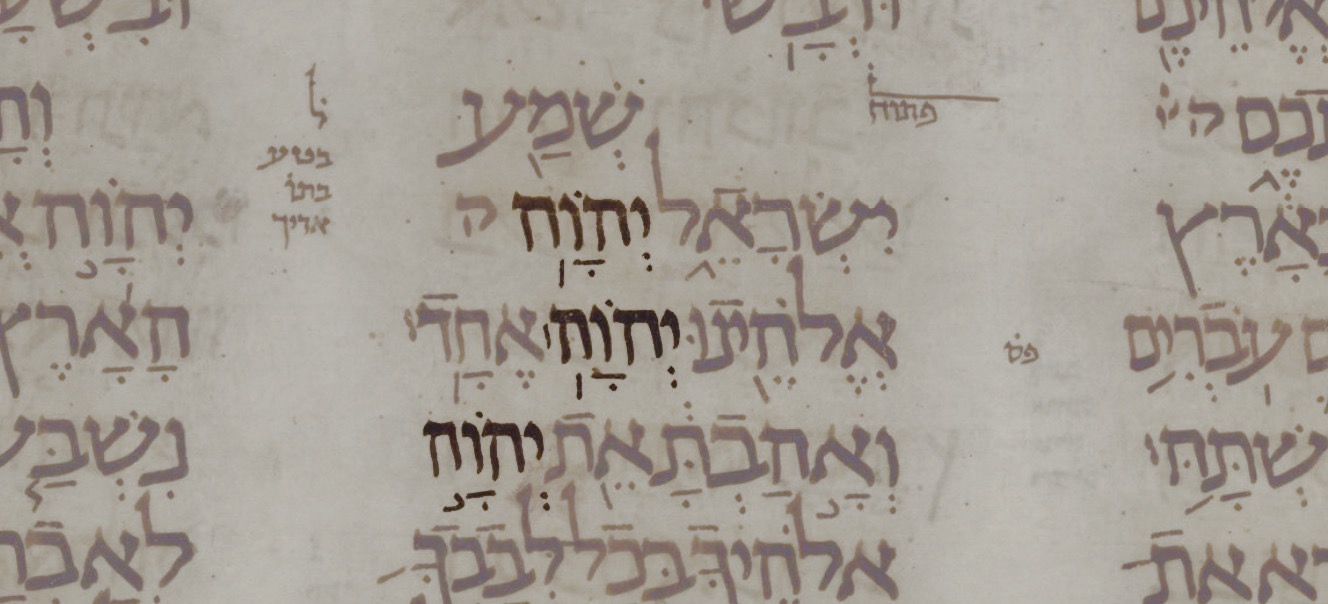So, anything with a "j" is forbidden? Heh - you're playing games with YOURSELF.
So I guess I am forbidding myself...

Seriously dude, if you have something of value to add, please do.
Twisting words around so you make yourself look like you know something only reflects badly on you.
There is plenty of genuine place for differing interpretations, but what you are doing is so far removed from logic and scholarship as to be ignored as foolishness.
As for the letter "J:"
History
The letter
J used to be used as the
swash letter
I, used for the letter I at the end of
Roman numerals when following another I, as in XXIIJ or xxiij instead of XXIII or xxiii for the Roman numeral twenty-three. A distinctive usage emerged in
Middle High German.
[5] Gian Giorgio Trissino (1478–1550) was the first to explicitly distinguish I and J as representing separate sounds, in his
Ɛpistola del Trissino de le lettere nuωvamente aggiunte ne la lingua italiana ("Trissino's
epistle about the letters recently added in the
Italian language") of 1524.
[6] Originally, 'I' and 'J' were different shapes for the same letter, both equally representing /i/, /iː/, and /j/; however,
Romance languages developed new sounds (from former /j/ and /ɡ/) that came to be represented as 'I' and 'J'; therefore,
English J, acquired from the
French J, has a sound value quite different from /j/ (which represents the initial sound in the English language word "
yet").
English
In English, ⟨j⟩ most commonly represents the
affricate /dʒ/. In
Old English, /dʒ/ was represented orthographically with ⟨cᵹ⟩
[8] (an alternative representation of the Old English spelling is ⟨cg⟩; there is no meaningful difference as ⟨ᵹ⟩ in Old English was simply the regular form of the letter G, called
Insular G). In Middle English, scribes began to use ⟨i⟩ (later ⟨j⟩) to represent word-initial /dʒ/ under the influence of
Old French, which had a similar phoneme deriving from Latin /j/ (for example,
iest and later
jest), while the same sound in other positions could be spelled as ⟨dg⟩ (for example,
hedge).
[8] The first
English language books to make a clear distinction in writing between ⟨i⟩ and ⟨j⟩ were the
King James Bible 1st Revision Cambridge 1629 and an English grammar book published in 1633.
[9]

en.wikipedia.org
So, in short, do yourself a favor and work on your reading comprehension. I never said "forbidden," nor was it ever implied by me. Having said that, the English words with "J" are not accurate to what was really said, particularly the names.
Strong's 2424
Iēsoús –
Jesus, the transliteration of the Hebrew term,
3091 /Lṓt ("Yehoshua"
/Jehoshua, contracted to "Joshua") which means "
Yahweh saves" (or "
Yahweh is salvation").
Once again, Strong's 3841
pantokrátōr (from
3956 /pás, "all" and
2902 /kratéō, "prevail") – properly,
almighty; unrestricted power exercising absolute dominion - (this is as close as you are going to find for "Jehovah" in the Greek)
Strong's 3069 A variation of
Yhovah (used after
'Adonay, and pronounced by Jews as
'elohiym, in order to prevent the repetition of the same sound, since they elsewhere pronounce
Yhovah as
'Adonay) -- God. (Hebrew)
Strong's 2501
Ἰωσήφ, indeclinable (in Josephus (e. g. contra Apion 1, 14, 16; 32, 3; 33, 5) Ιωσηπος), ὁ (יוסֵף, from יָסַף to add,
Genesis 30:23f (cf. B. D. under the word )), Joseph;
Strong's 2491
Ἰωάννης and ((so WH uniformly, except in
Acts 4:6;
Acts 13:5;
Revelation 22:8) Tr in the Gospels of Luke and John (in the Acts, excluding
Acts 4:6) and the Revelation (excluding
Revelation 22:8)) Ἰωάνης (cf. Tdf. Proleg., p. 79; WHs Appendix, p. 159; Scrivener, Introduction, p. 562 (cf. under the word Nu)), genitive Ἰωάννου, dative Ἰωάννῃ and (in (
Matthew 11:4 WH;
Revelation 1:1 WH);
Luke 7:18 T Tr WH (22 T Tr WH) Ἰωαννει (cf. WHs Appendix, p. 158; Buttmann, 17 (16), 7)), accusative Ἰωάννην, 6 (יוחָנָן and יְהוחָנָן, to whom Jehovah is gracious (others whom Jehovah has graciously given), German Gotthold; the Sept. Ἰωανναν (Tdf. Ἰωανάν),
1 Chronicles 3:24; Ἰωνᾶ,
2 Kings 25:23; Ἰωάνης,
2 Chronicles 28:12 (cf. B. D. American edition, under the word )), John;
Just to look at the different ways the name John alone is spelled across various languages should drive my point home:
John (
/dʒɒn/;
JON) is a common male given name in the
English language ultimately of
Hebrew origin. The English form is from
Middle English Ion,
Ihon,
Jon, Jan (mid-12c.), itself from
Old French Jan,
Jean,
Jehan (Modern French
Jean),
[2] from
Medieval Latin Johannes, altered form of
Late Latin Ioannes,
[2] or the Middle English personal name is directly from Medieval Latin,
[3] which is from the
Greek name
Ioannis (Ιωάννης), originally borne by
Hellenized Jews transliterating the
Hebrew name
Yochanan (יוֹחָנָן), the contracted form of the longer name
Yehochanan (יְהוֹחָנָן), meaning "
Yahweh is Gracious" or "Yahweh is Merciful". There are numerous forms of the name in different languages; these were formerly often simply translated as "John" in English, but are increasingly left in their native forms (see sidebar).
[4]
It is among the most commonly given names in
Anglophone, Arabic, European,
Latin American,
Iranian, and
Turkic countries.

en.wikipedia.org
---
So yes, you need to do some study in basic linguistics.



religionnews.com
